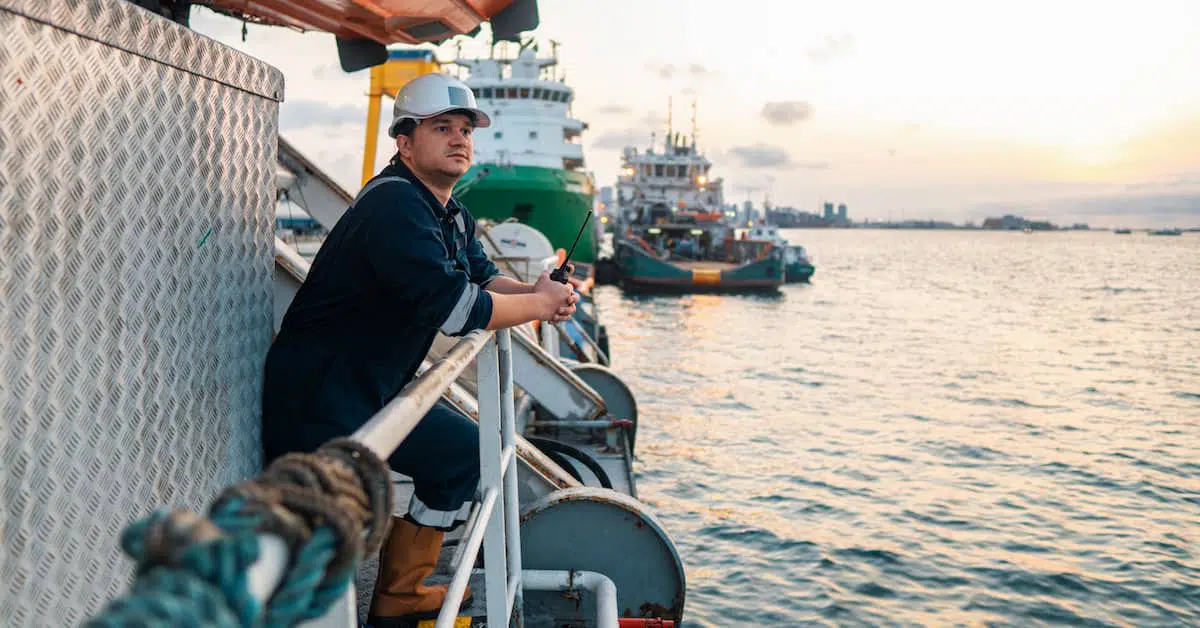
Because Louisville is on the Ohio River, many personal injury cases our firm handles involve injured workers who earn their living on barges, tug boats, docks, and bridges. In these cases, maritime workers are protected under either the Jones Act or the Longshore and Harbor Workers’ Compensation Act (LWHCA).
Experienced maritime injury attorney Karl Truman is a second-generation merchant marine. He knows firsthand the challenges of working on the water and the devastation an injury can have on the lives of accident victims and their families. He is dedicated to helping his clients the maximum compensation you need to get your life back on track.
Maritime work is demanding, strenuous, and often dangerous. For maritime workers, the most common cause of injuries is often negligence that could have been prevented by following common safety practices. Unsecured cargo, wet stairs, faulty equipment, and other hazardous conditions can lead to severe injuries and illnesses, and even death.
Officially known as the Merchant Marine Act of 1920, the Jones Act was passed in 1920 to protect workers involved in maritime labor. The piece of legislature protects maritime workers who spend at least 30 percent of their active service time on a water vessel such as a:
If your labor contributes to a vessel’s operation as a dock worker, cargo loader, or maintenance personnel, you may also be covered under the Jones Act. Certain maritime workers do not qualify for Jones Act benefits and must pursue benefits under the Longshore and Harbor Workers’ Compensation Act. An attorney can explain your rights and what benefits are most appropriate in your specific case.
Under the Jones Act, key provisions apply to a specific class of workers called seamen. It is important to understand this distinction when pursuing an injury claim. However, it is also important to note that neither the Jones Act nor the Merchant Marine Act offers a binding definition of who exactly qualifies as a seaman.
Working on a watercraft does not automatically qualify a laborer as a seaman. Lawyers on both sides must determine if a plaintiff qualifies as a seaman by reviewing prior cases.
In the absence of a binding legal definition, most maritime lawyers and judges typically agree that a seaman is a person who is employed or otherwise engaged in any capacity onboard a vessel. Scientific personnel and sailing school instructors or students are usually exceptions to this. This broad definition has undergone changes over the years and remains subject to revision.
Workers who do not qualify as seamen may still be able to seek damages under the Longshore and Harbor Workers’ Compensation Act (LWHCA). This federal law covers dock workers, shipbuilders, and harbor construction workers who are injured in the wharf area of a harbor. LWHCA provisions differ from standard workers’ compensation laws and can often provide better compensation.
So long as the injury occurred during the scope of the seaman’s employment, any injuries that occur due to the negligence of a vessel owner or other employee are compensable under the Jones Act. An injury that occurs off of a vessel may also be covered, depending on what the seaman was doing at the time of the injury.
Maritime worker injuries can result from a range of causes. Common accidents faced by workers on the Ohio River include:
Owners of water vessels have an obligation to maintain the safety of their ships and any onboard equipment that may be used by workers. When vessel owners fail in this duty, and a seaman is hurt as a result, the shipowner may be held liable.
Maritime law is complicated and involves an array of statutes, rules, and agreements. Your case may fall under federal court jurisdiction or be tried in a state court.
Before you accept any offer from your employer or insurance company, it is in your best interest to speak with a maritime injury attorney who has experience with these complex cases. At the Karl Truman Law Office, we’ve helped many wrongfully injured seamen in a range of difficult cases. We are committed to helping you pursue the compensation you need after a serious injury.
See what our clients say about us.
If you were hurt in a work-related maritime accident, call the Karl Truman Law Office today at (502) 222-2222 or schedule your free consultation online. Our firm welcomes injured workers from the Louisville, Kentucky, and Jeffersonville, Indiana, areas.